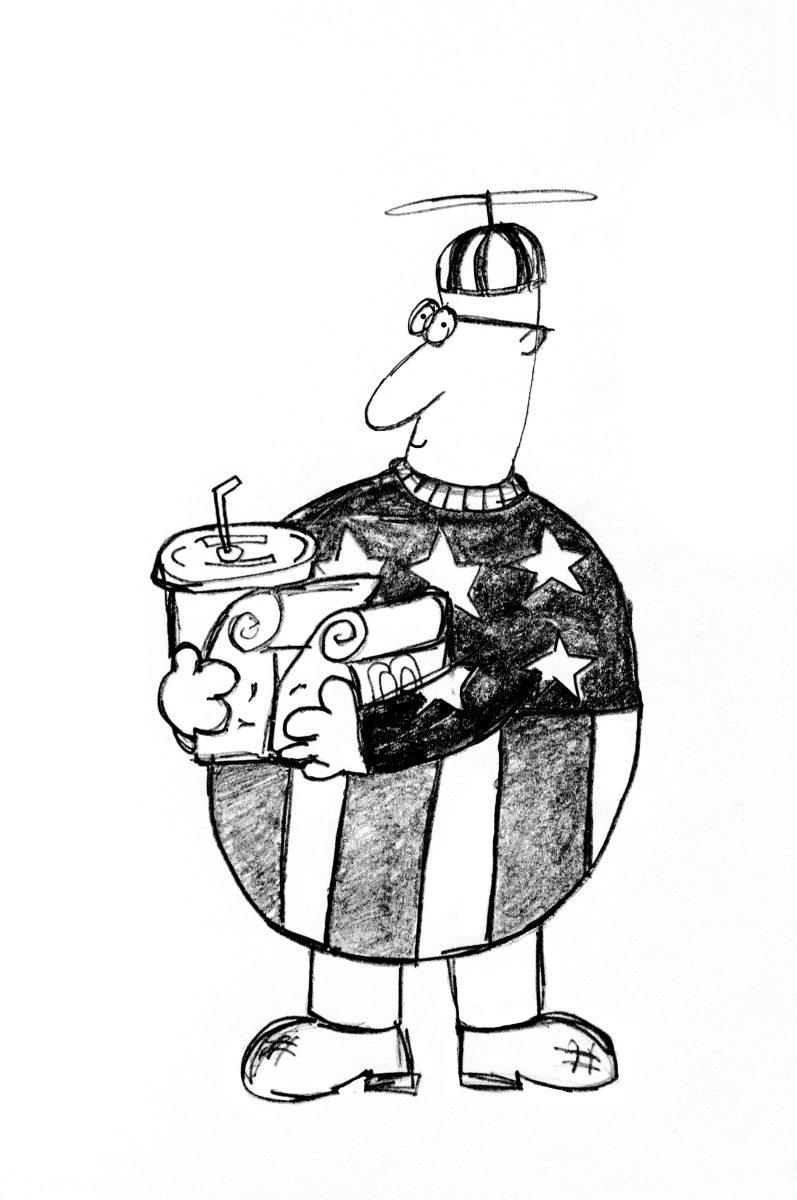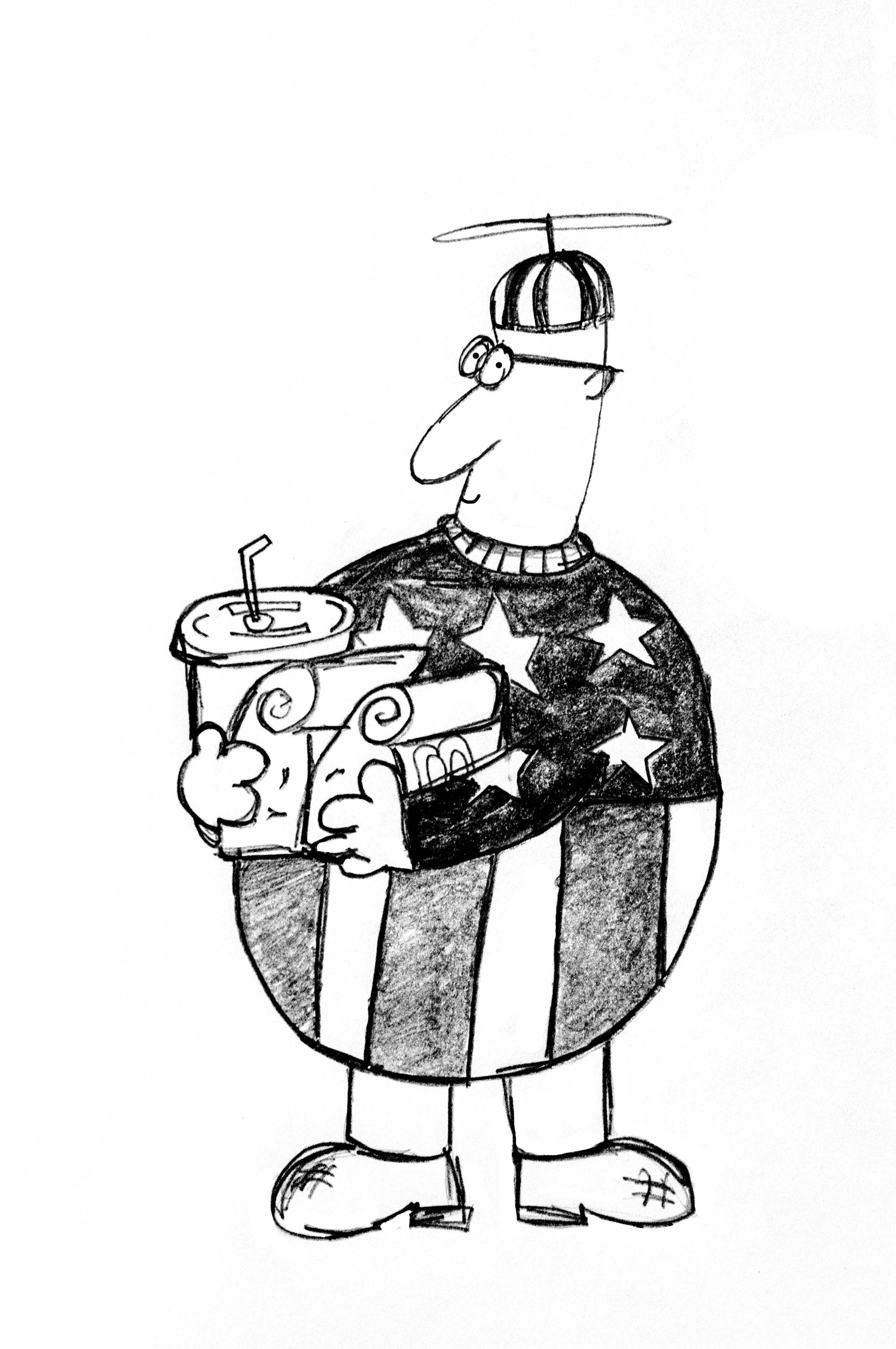Americans throw away nearly half of the food consumed, which is a disturbing example of how society is being built upon excess and waste.
The Huffington Post estimates this lost food is worth about $165 billion annually. That is, in effect, $165 billion taken out of the American economy and literally thrown in the trash. This waste of food poses moral, economic and ecological dilemmas.
From a moral standpoint, it almost goes without saying that throwing away nearly half of our food when we live in a world where millions starve every day seems criminal. But Americans are insulated from this reality by an economy and culture that’s designed with the mentality of more is better.
The food industry is just one facet of the excess and waste that dwells within American consumerism be it clothes, technology or otherwise. In short, we have a moral obligation to pay more attention to our own wasteful habits in a world where others starve.
From an economic standpoint, wasting food, especially for the consumer, results in a loss of money that can’t be retrieved.
The obvious fact that food is perishable makes any essentially lost wealth. The problem is exacerbated on two fronts, the food industries overproduction coupled with a culture which conditions consumers to buy more than they need, which encourages wasting food.
The U.S. Government also provides $10 billion to $30 billion worth of cash subsidies for agricultural industry, largely benefiting corporations.
These subsidies are distributed with the intent of making farming lucrative in the United States and thus keep the country’s food products competitively priced on the world market. This backward logic encourages farms to produce food at maximum capacity, often through expensive technologies or at the expense of the environment.
The intensive farming that takes place in the Midwest requires large amounts of fertilizer and pesticides in order to achieve maximum production. These substances, through water drainage, make their way to the Mississippi river and ultimately the Gulf of Mexico.
Their impact is apparent through a significant lack of marine life in areas affected. These so called “dead zones” exist around the world as a result of modern farming techniques.
Human nature tends to follow the status quo. In light of this, and the urgency in which environmental issues surrounding food production need to be addressed, we don’t have the time to spare waiting on consumers to change. Therefore, I advise steps be implemented, by various levels of government, to curb food waste and install more sustainable practices.
These sustainable practices come in many forms, such as growing a diversity of crops instead of practicing monoculture. This would help maintain soil integrity and support native species of animals and insects that need a variety of plant life to thrive.
Putting compost bins in every home, school or place of work would slash the amount of organic waste put in landfills. While compost programs take an initial investment to organize, in many cases they are self-sustaining by selling composted materials as fertilizer to farmers.
The city of Las Vegas, while offering no natural resources, operates one of the most successful compost programs in the country.
By far the most resource taxing portion of the food industry is meat production. The meat industry uses vast amounts of water, land and fossil fuels for relatively little product if those resources were put toward farming. The Food and Agriculture Organization estimates that livestock contribute 15 percent of annual greenhouse gas emissions and the numbers are much higher for industrialized nations.
In addition, large-scale livestock farms stress the land they use and pose a constant threat of contamination for surrounding areas. For these reasons, the meat industry’s farming practices must evolve to be less damaging and its operation as a whole should ultimately be downsized. This is achievable through regulation.
Some of these suggestions would definitely be unpopular. If they were actually mandated and implemented by the government, a rise in food prices could surely be expected. However, they are concrete solutions to environmental degradation that are much less painful than facing an agricultural or economic crisis. Such a crisis could come in the form of crop failure, water contamination from pesticides and general negative effects as a result of greenhouse gasses speeding global warming.
Change can start on a local level at Sonoma State. Creating a compost program and individuals taking initiative to waste less at food at dining venues on campus are immediate actions that could help reduce our personal contribution to the food waste problem.
In the modern world, nature is at the will of humanity. Our relationship with food must change from blind consumers to conscious stewards of our resources.
Greater attention toward minimizing and utilizing food waste would improve our moral standing as a society, benefit the economy long-term, improve the public’s general health and create an ecologically sustainable future.
Sometimes we need to feel discomfort in order to change for the better.





![[Both photos courtesy of sonoma.edu]
Ming-Ting Mike Lee stepped in as the new SSU president following Sakakis resignation in July 2022](https://sonomastatestar.com/wp-content/uploads/2024/04/CC4520AB-22A7-41B2-9F6F-2A2D5F76A28C-1200x1200.jpeg)



























